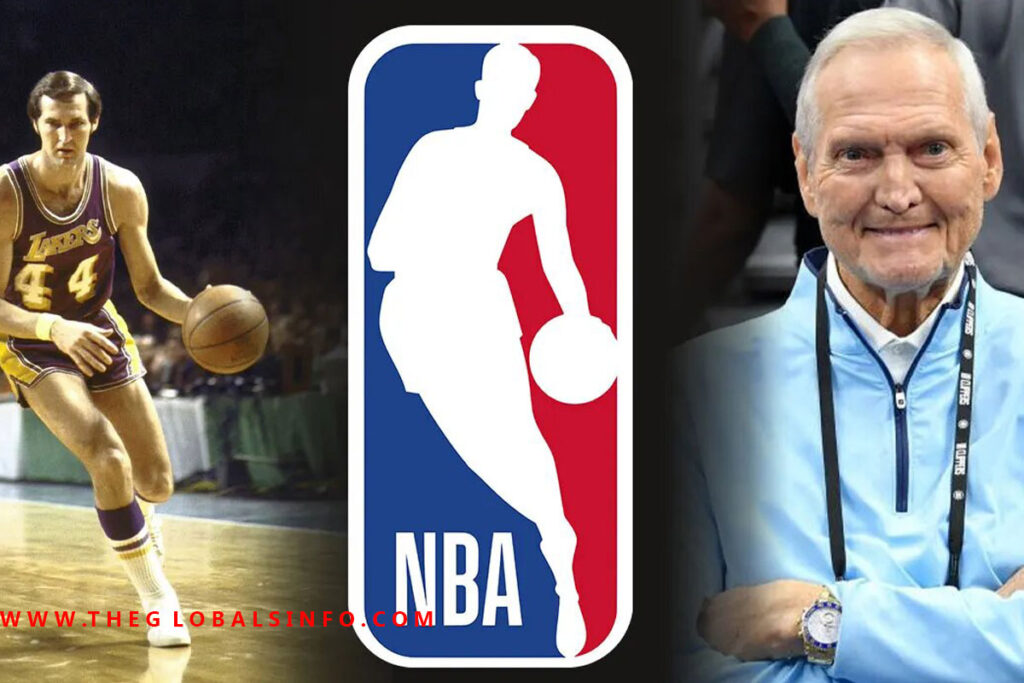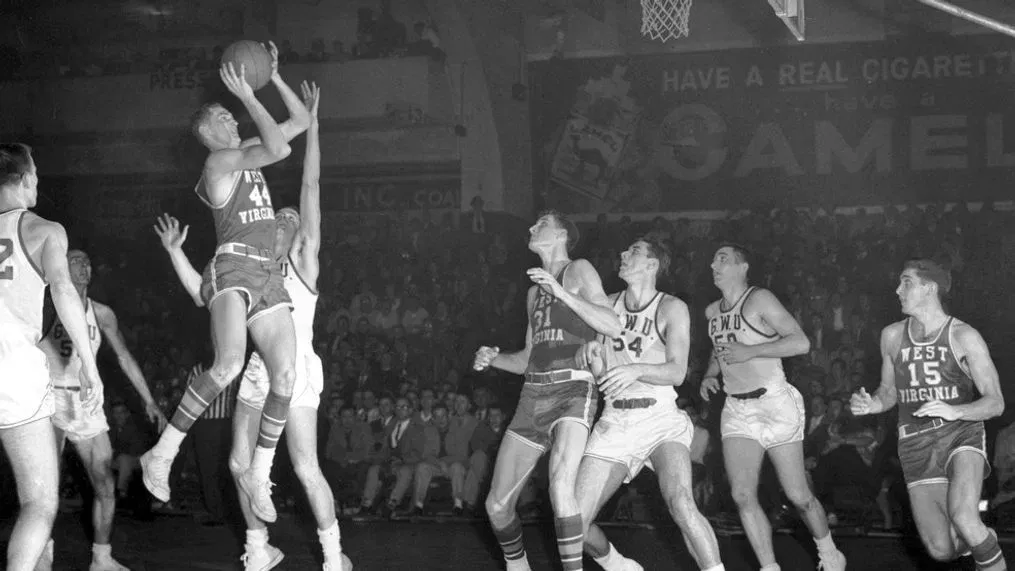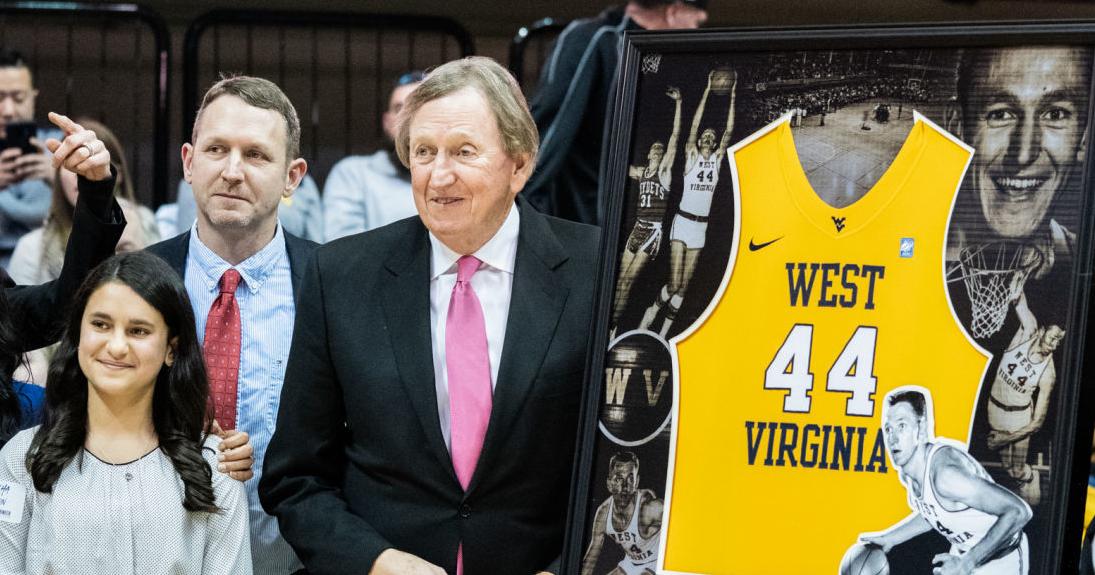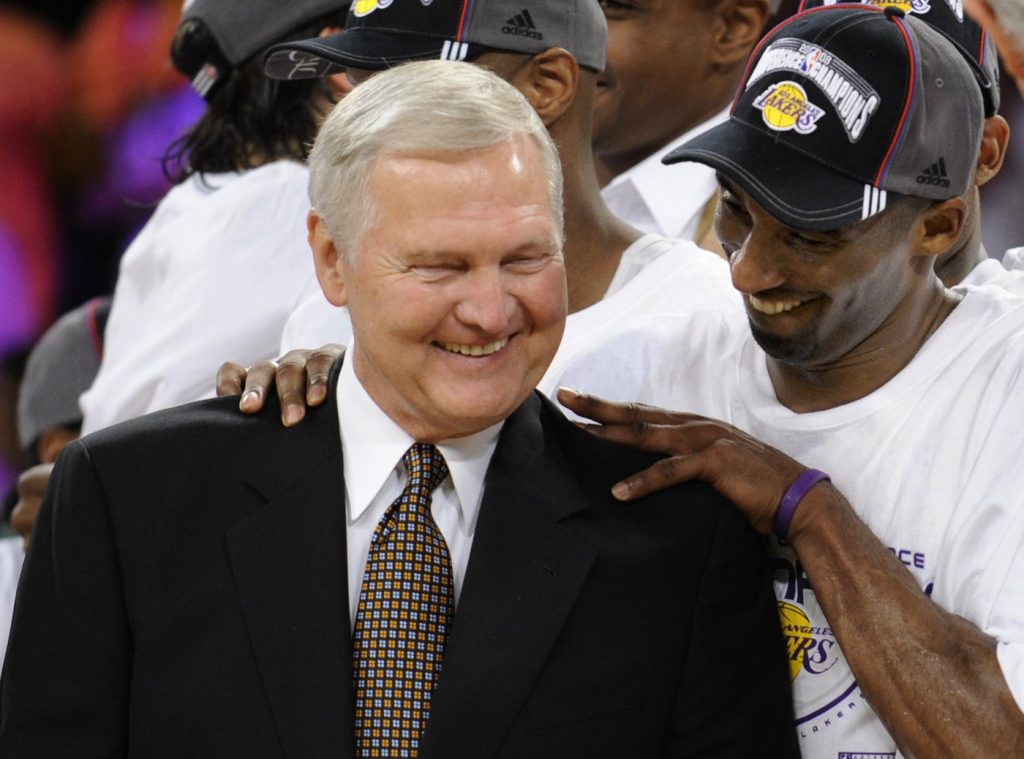Legendary NBA Icon Jerry West Reflects on His Storied Career
Jerry West, the legendary NBA icon, stands as a towering figure in the history of basketball. Known as “Mr. Clutch” for his remarkable performances under pressure, West’s career is a tapestry of triumphs, challenges, and indelible contributions to the sport. Reflecting on his storied career, West offers insights into the experiences and values that have defined his journey.
West’s ascent to basketball greatness began in Chelyan, West Virginia, where his passion for the game was ignited on the outdoor courts of his hometown. His dedication and relentless practice paid off as he emerged as a standout player at East Bank High School, leading his team to a state championship in 1956. His remarkable talent earned him a scholarship to West Virginia University, where he continued to shine, becoming an All-American and leading the Mountaineers to the NCAA Championship game in 1959.
In 1960, West entered the NBA Draft and was selected by the Minneapolis Lakers, who soon relocated to Los Angeles. Over his 14-season career with the Lakers, West established himself as one of the most versatile and prolific guards in the league. His scoring prowess, defensive tenacity, and exceptional court vision made him a perennial All-Star and a fan favorite. West’s ability to perform under pressure earned him the nickname “Mr. Clutch,” epitomized by his iconic buzzer-beater in the 1970 NBA Finals.
Despite his individual brilliance, team success proved elusive for much of West’s career. The Lakers reached the NBA Finals nine times during his tenure but frequently fell short against the dominant Boston Celtics. However, West’s perseverance and leadership eventually culminated in a championship in 1972, a crowning achievement that remains one of his most cherished memories.
West’s influence extended beyond his playing days. Transitioning to an executive role, he served as the Lakers’ general manager, architecting one of the most successful eras in NBA history. His keen eye for talent and shrewd decision-making brought superstars like Magic Johnson, Kareem Abdul-Jabbar, and Shaquille O’Neal to Los Angeles, resulting in multiple championships and solidifying the Lakers’ legacy.
In reflecting on his career, West often speaks about the importance of resilience and the relentless pursuit of excellence. He candidly discusses the personal struggles he faced, including battles with self-doubt and the pressure of living up to his own high standards. West’s openness about his mental health has inspired many, highlighting the human side of an iconic athlete often viewed as invincible.
West’s contributions to basketball have been recognized with numerous accolades, including his induction into the Naismith Memorial Basketball Hall of Fame in 1980 and the distinction of being the silhouette in the NBA’s logo. Yet, for West, the true measure of his legacy lies in the relationships he built and the impact he had on teammates, opponents, and fans alike.
As Jerry West reflects on his storied career, his narrative is one of passion, perseverance, and an unwavering commitment to the game he loves. His journey from a small town in West Virginia to the pinnacle of basketball success is a testament to the power of dedication and the enduring spirit of a true champion. Through highs and lows, triumphs and trials, West’s story continues to inspire future generations, cementing his place as one of the greatest icons in NBA history.
Jerry West: The Man Behind the NBA’s Iconic Logo
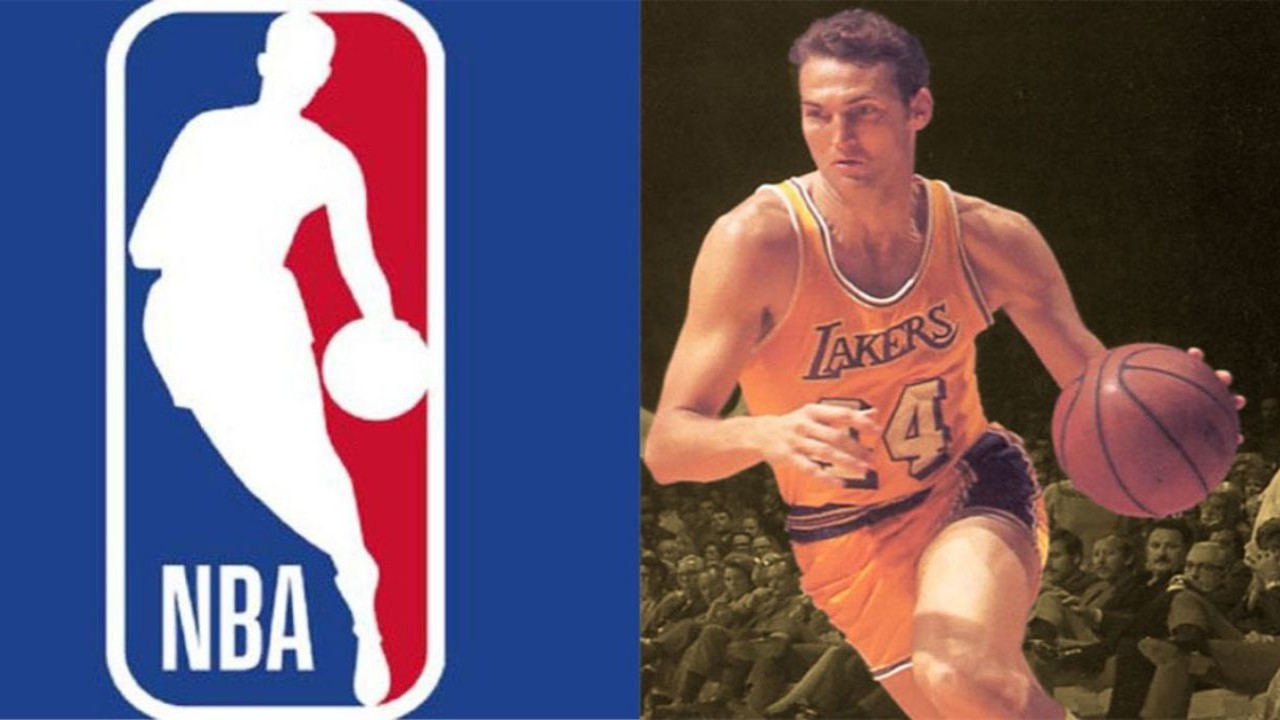
Jerry West, known affectionately as “Mr. Clutch,” is more than just a legendary basketball player; he is the man immortalized in the NBA’s iconic logo. This emblem, a silhouette of West in mid-dribble, symbolizes excellence, grace, and the enduring legacy of one of the sport’s greatest figures.
West’s journey to becoming an icon began in the humble town of Chelyan, West Virginia. His early years were marked by a relentless pursuit of perfection, often practicing for hours on end at the local courts. This dedication paid off as he quickly rose to prominence at East Bank High School, leading his team to a state championship in 1956. His extraordinary talent and work ethic earned him a scholarship to West Virginia University, where he further honed his skills and became a two-time All-American.
In 1960, West entered the NBA Draft and was selected by the Minneapolis Lakers, who soon relocated to Los Angeles. Over his 14-year career with the Lakers, West established himself as one of the most versatile and formidable guards in the league. His scoring ability, defensive prowess, and clutch performances earned him a perennial spot in the All-Star lineup and endeared him to fans. Despite frequently facing setbacks in the form of Finals losses to the Boston Celtics, West’s tenacity and resilience were undeniable.
West’s most notable moment came in the 1970 NBA Finals when he hit a 60-foot buzzer-beater to force overtime in Game 3 against the New York Knicks. Although the Lakers eventually lost the series, West’s heroics epitomized his “Mr. Clutch” moniker and cemented his reputation as one of the game’s greatest players. His crowning achievement came in 1972 when he led the Lakers to their first championship in Los Angeles, a fitting reward for years of perseverance and excellence.
Beyond his playing career, West transitioned seamlessly into an executive role. As the Lakers’ general manager, he orchestrated one of the most successful eras in NBA history, acquiring superstars like Magic Johnson, Kareem Abdul-Jabbar, and Shaquille O’Neal. His vision and acumen were instrumental in building championship-winning teams and ensuring the Lakers’ dominance for decades.
The story of the NBA logo began in 1969 when the league sought to create a new emblem that encapsulated the spirit of basketball. Designer Alan Siegel selected a photograph of West in action, captivated by the player’s elegance and dynamism. The silhouette was a perfect representation of the sport’s fluidity and excitement. While the NBA has never officially acknowledged West as the model for the logo, it is widely accepted and celebrated within the basketball community.
West’s impact on the game extends beyond statistics and accolades. He has been a vocal advocate for mental health, openly discussing his battles with anxiety and depression. His honesty and vulnerability have resonated with many, breaking down stigmas and encouraging others to seek help. West’s contributions to the game and society have been recognized with numerous honors, including induction into the Naismith Memorial Basketball Hall of Fame in 1980.
Jerry West’s legacy is one of excellence, resilience, and an unwavering passion for basketball. As the man behind the NBA’s iconic logo, he represents the very best of the sport, inspiring generations of players and fans. His journey from a small town in West Virginia to the pinnacle of basketball success is a testament to the power of dedication and the enduring spirit of a true champion.
From Player to Executive: Jerry West’s Lasting Impact on the NBA
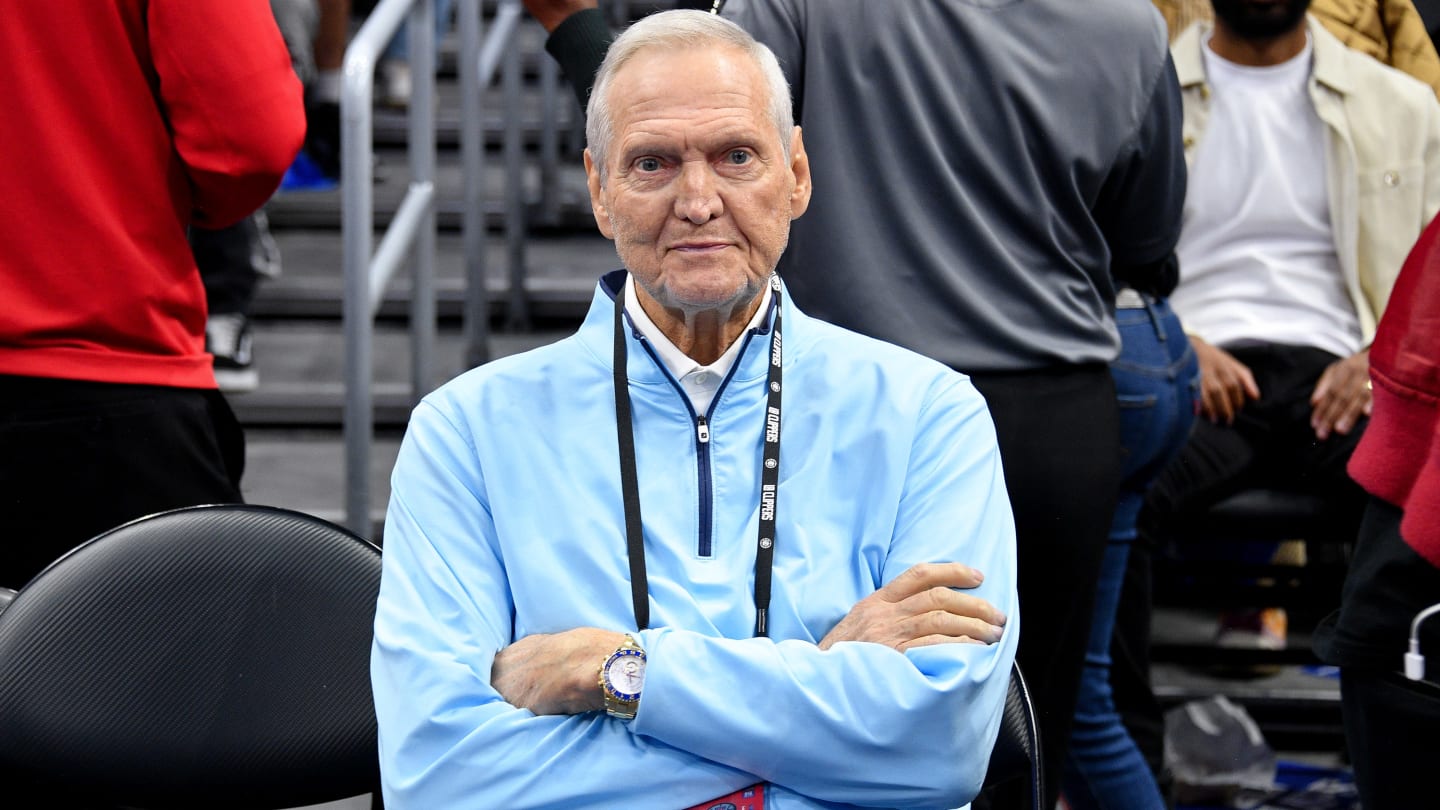
Jerry West’s name is synonymous with basketball excellence. His transformation from a legendary player to a highly influential executive underscores a career that has left an indelible mark on the NBA. Known as “Mr. Clutch” during his playing days, West’s contributions off the court have been equally impactful, shaping the league in profound ways.
West’s basketball journey began in Chelyan, West Virginia, where his love for the game took root on the local courts. His relentless practice and competitive spirit propelled him to stardom at East Bank High School, leading to a scholarship at West Virginia University. At WVU, West became a two-time All-American and led the Mountaineers to the NCAA Championship game in 1959, showcasing his scoring ability and defensive prowess.
In 1960, West was selected by the Minneapolis Lakers in the NBA Draft, a team that soon relocated to Los Angeles. Over his 14-season career with the Lakers, West became one of the most versatile and prolific guards in NBA history. His scoring talent, defensive tenacity, and clutch performances made him a perennial All-Star and earned him the nickname “Mr. Clutch.” Despite the Lakers’ frequent Finals losses to the Boston Celtics, West’s determination never waned, culminating in a championship victory in 1972.
West’s transition from player to executive was seamless, and his impact in the front office was immediate. As the Lakers’ general manager, he displayed a keen eye for talent and an ability to build championship-winning teams. His tenure saw the acquisition of Magic Johnson and Kareem Abdul-Jabbar, forming the core of the Showtime Lakers, who dominated the 1980s with five NBA titles. West’s strategic brilliance was further evidenced by his drafting of James Worthy, another key player in the Lakers’ success.
In 1996, West orchestrated one of the most pivotal moves in NBA history by trading for Kobe Bryant, then an unproven 17-year-old, and signing Shaquille O’Neal. This duo became the cornerstone of the Lakers’ three-peat championships from 2000 to 2002. West’s ability to identify and acquire talent ensured the Lakers’ continued dominance and cemented his reputation as one of the greatest executives in sports.
West’s influence extended beyond the Lakers. After leaving Los Angeles, he served as an executive for the Memphis Grizzlies, where he helped transform the struggling franchise into a playoff contender. His later roles with the Golden State Warriors and the Los Angeles Clippers further showcased his strategic acumen, contributing to the Warriors’ dynasty in the mid-2010s and the Clippers’ rise as a formidable contender in the Western Conference.
Throughout his career, West has been an advocate for the mental well-being of players, openly discussing his battles with anxiety and depression. His transparency has helped destigmatize mental health issues in sports, encouraging players to seek support and prioritize their well-being.
Jerry West’s legacy is not confined to his silhouette on the NBA logo; it is etched in the annals of the league’s history through his contributions both on and off the court. From his days as a clutch performer to his visionary leadership as an executive, West has consistently exemplified excellence, resilience, and innovation. His impact on the NBA is lasting and profound, inspiring future generations of players and executives to strive for greatness and to embrace the holistic well-being of the athletes who make the game possible.
Jerry West Shares Insight on Today’s Basketball Stars

Jerry West, the legendary NBA icon whose silhouette graces the league’s logo, continues to be a prominent voice in basketball. With a career spanning over six decades as a player and executive, West’s perspectives on today’s basketball stars are informed by a wealth of experience and an unerring eye for talent. His insights reveal not only a deep appreciation for the current generation of players but also a keen understanding of the evolving dynamics of the game.
West has often expressed admiration for the skill and athleticism that define modern basketball. He notes that today’s stars benefit from advancements in training, nutrition, and sports science, which have elevated the game to unprecedented levels. “The players today are incredibly skilled and athletic,” West observes. “The way they shoot, handle the ball, and their overall athleticism is truly remarkable.”
One player who consistently earns West’s praise is LeBron James. West has lauded James not only for his physical prowess but also for his basketball IQ and leadership. “LeBron is one of the most complete players we’ve ever seen,” West says. “His ability to impact the game in so many ways, from scoring and passing to defense, is extraordinary. He’s also been a great leader on and off the court.”
West’s admiration extends to Stephen Curry, whose transformative impact on the game cannot be overstated. “Steph has changed the way basketball is played,” West remarks. “His shooting range and accuracy have forced defenses to adjust in ways we never thought possible. He’s not just a great shooter; he’s a great player who makes everyone around him better.”
Kevin Durant is another star who has earned West’s respect. Durant’s combination of size, skill, and scoring ability makes him a unique talent in NBA history. “Kevin is a matchup nightmare,” West explains. “At nearly seven feet tall, he can score from anywhere on the court. His versatility and efficiency are what set him apart.”
West also acknowledges the rise of young stars like Luka Dončić and Giannis Antetokounmpo, whose diverse skill sets and competitive drive have captivated fans worldwide. “Luka has an incredible feel for the game,” West notes. “He plays with a poise and creativity that’s rare for someone his age. Giannis, on the other hand, is a physical marvel. His work ethic and determination to improve every year are truly commendable.”
While West celebrates the talents of today’s players, he also emphasizes the importance of intangibles like work ethic, mental toughness, and leadership. He believes these qualities are what ultimately separate the good from the great. “Talent is important, but it’s the intangibles that make a player truly special,” West asserts. “The willingness to put in the work, to overcome adversity, and to lead by example—those are the qualities that define greatness.”
In reflecting on today’s NBA, Jerry West sees a league rich with talent and potential. His insights remind us that while the game continues to evolve, the core values of dedication, resilience, and passion remain timeless. As basketball progresses, West’s wisdom and experience offer a valuable perspective, celebrating the achievements of today’s stars while underscoring the principles that have always defined the sport.
The Life and Legacy of Jerry West: A Basketball Titan
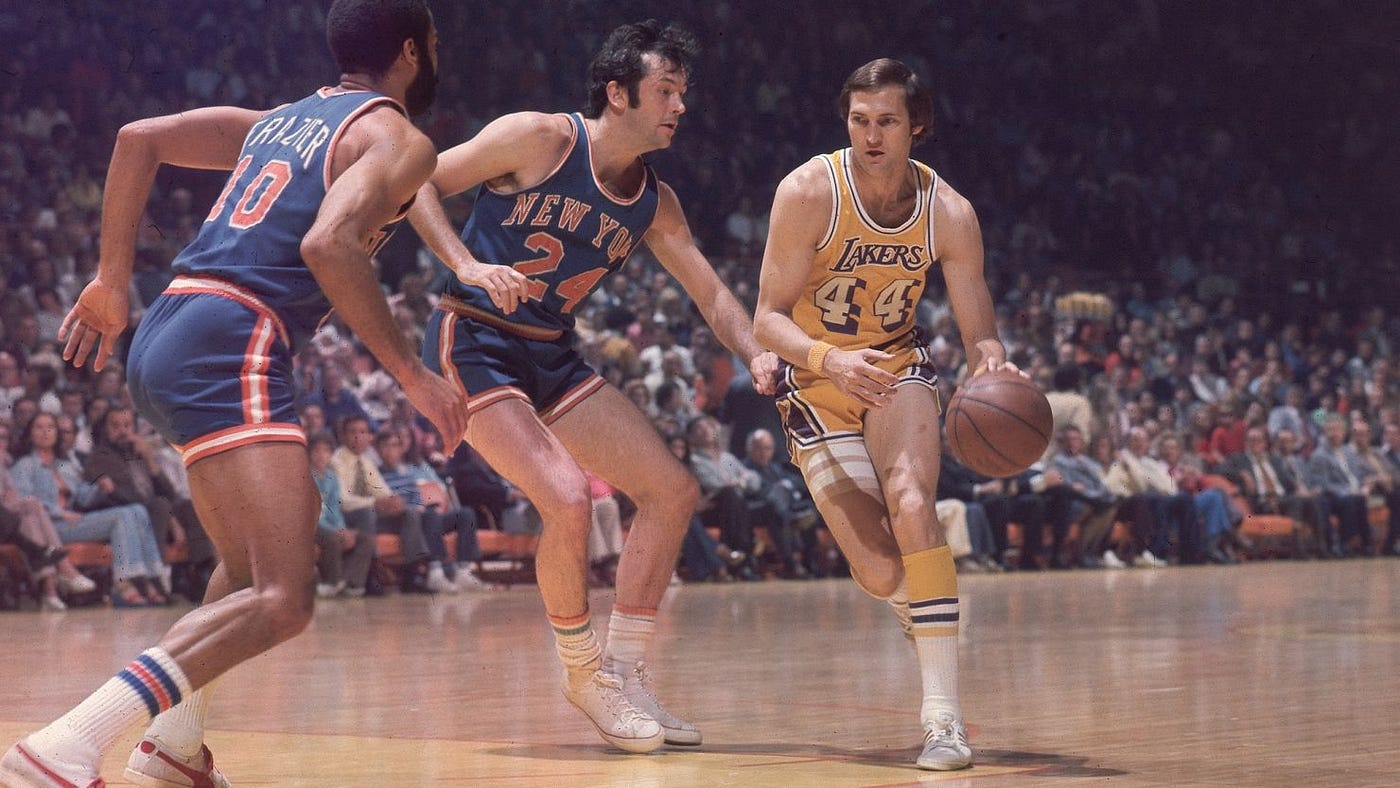
Jerry West, a name synonymous with basketball excellence, has left an indelible mark on the NBA as both a player and an executive. Known for his exceptional skills, competitive spirit, and strategic acumen, West’s contributions have profoundly shaped the game. His life and legacy stand as a testament to his enduring impact on the sport.
West’s journey began in the small town of Chelyan, West Virginia, where his passion for basketball ignited on local courts. His early years were marked by relentless practice and a fierce drive to excel. This dedication paid off as he led East Bank High School to a state championship in 1956, earning him a scholarship to West Virginia University. At WVU, West became a two-time All-American, leading the Mountaineers to the NCAA Championship game in 1959 and cementing his status as a standout player.
In 1960, West was selected by the Minneapolis Lakers in the NBA Draft, shortly before the team relocated to Los Angeles. Over his 14-season career with the Lakers, West emerged as one of the most versatile and prolific guards in NBA history. His scoring prowess, defensive tenacity, and clutch performances earned him the nickname “Mr. Clutch.” Despite facing frequent setbacks in the form of Finals losses to the Boston Celtics, West’s resilience never faltered. His crowning achievement came in 1972 when he led the Lakers to their first championship in Los Angeles, a victory that remains a highlight of his illustrious career.
West’s influence extended beyond his playing days as he seamlessly transitioned into an executive role. As the Lakers’ general manager, his keen eye for talent and strategic brilliance became evident. He was instrumental in acquiring Magic Johnson and Kareem Abdul-Jabbar, forming the core of the Showtime Lakers who dominated the 1980s with five NBA titles. West’s legacy as an executive was further solidified by his role in bringing Shaquille O’Neal and Kobe Bryant to the Lakers in the late 1990s, a move that led to three consecutive championships from 2000 to 2002.
Beyond the Lakers, West’s executive prowess was evident in his tenures with the Memphis Grizzlies and the Golden State Warriors. In Memphis, he transformed the franchise into a playoff contender, and in Golden State, his strategic insights helped build a dynasty that won three championships in four years. West’s ability to recognize talent and build winning teams is unparalleled, earning him widespread respect across the league.
Throughout his career, West has been a vocal advocate for mental health, openly discussing his battles with anxiety and depression. His transparency has helped destigmatize mental health issues in sports, encouraging athletes to seek support and prioritize their well-being.
Jerry West’s legacy is also immortalized in the NBA’s iconic logo, which features his silhouette. While the league has never officially confirmed this, it is widely accepted and celebrated as a fitting tribute to his impact on the game.
In reflecting on his life and career, Jerry West’s story is one of relentless dedication, resilience, and an unwavering passion for basketball. From his humble beginnings in West Virginia to his storied career as a player and executive, West’s influence on the NBA is profound and lasting. His journey serves as an inspiration to generations of players and fans, embodying the values of excellence, perseverance, and leadership that define a true basketball titan.
How Jerry West Shaped the Success of Multiple NBA Franchises
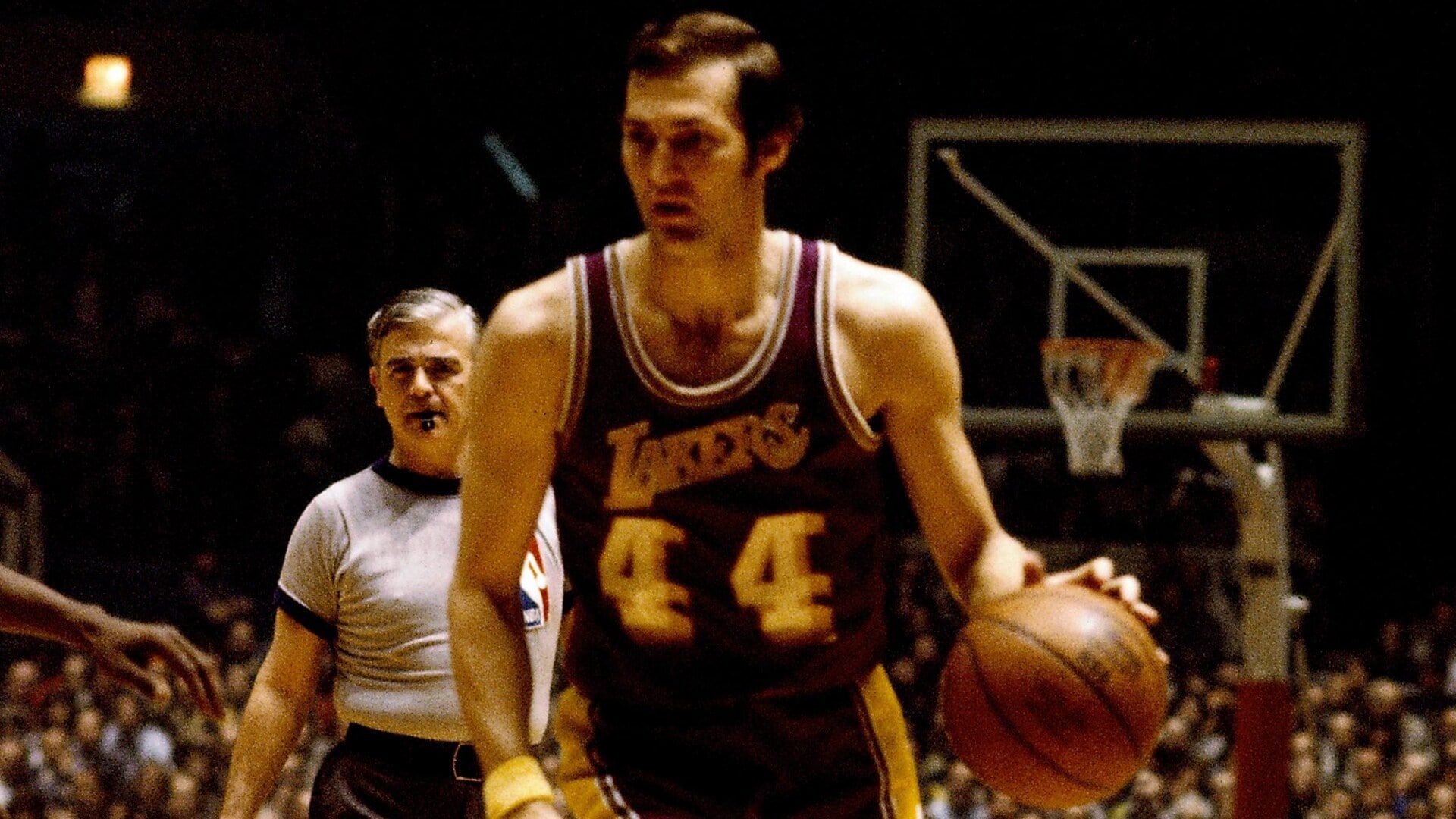
Jerry West, known as “Mr. Clutch” for his legendary on-court performances, has also earned a reputation as one of the most influential executives in NBA history. His strategic acumen and eye for talent have significantly shaped the success of multiple NBA franchises, leaving an indelible mark on the league.
West’s transition from a Hall of Fame player to a front-office maestro began with the Los Angeles Lakers, the team with which he spent his entire 14-season playing career. As the Lakers’ general manager from 1982 to 2000, West was instrumental in constructing one of the most dominant teams of the 1980s. His most significant moves included the drafting of Magic Johnson in 1979 and the acquisition of Kareem Abdul-Jabbar. These two moves laid the foundation for the Showtime Lakers, a team that won five NBA championships in the 1980s.
West’s brilliance in the front office extended beyond the Showtime era. In the mid-1990s, he orchestrated the acquisition of Shaquille O’Neal, a free-agent signing that would transform the Lakers into a powerhouse once again. His most audacious move, however, came during the 1996 NBA Draft when he traded for a young high school phenom named Kobe Bryant. Pairing O’Neal with Bryant, West set the stage for the Lakers’ three consecutive championships from 2000 to 2002. This period cemented West’s legacy as a mastermind in team-building.
After his tenure with the Lakers, West took on the challenge of transforming the Memphis Grizzlies, a struggling franchise looking for direction. Joining the Grizzlies in 2002, West quickly made impactful decisions that turned the team’s fortunes around. His leadership and savvy moves, such as the acquisition of key players like Pau Gasol, helped the Grizzlies reach the playoffs for the first time in franchise history in 2004. West’s ability to identify and develop talent brought credibility and competitiveness to a franchise that had previously been an NBA afterthought.
West’s success in Memphis was a testament to his adaptability and deep understanding of basketball dynamics. However, his influence did not stop there. In 2011, he joined the Golden State Warriors as an executive board member, bringing his wealth of experience to a team on the cusp of greatness. His input was crucial in key decisions, such as the drafting of Klay Thompson and Draymond Green and the decision to keep Stephen Curry despite early career injuries. These moves laid the groundwork for the Warriors’ dynasty, which saw them win three championships in four years from 2015 to 2018. West’s strategic guidance and basketball intellect were vital in shaping the Warriors’ modern success.
Most recently, West has been a consultant with the Los Angeles Clippers, where his expertise continues to be invaluable. His role in acquiring superstar talents like Kawhi Leonard and Paul George has positioned the Clippers as perennial contenders in the Western Conference. West’s ability to build competitive rosters and his reputation for making bold, intelligent moves have once again made a significant impact on a franchise’s trajectory.
Jerry West’s legacy as an executive is as storied and influential as his playing career. His unique ability to scout talent, make pivotal decisions, and build championship-caliber teams has shaped the success of multiple NBA franchises. From the Showtime Lakers and the Shaq-Kobe era to the resurgence of the Memphis Grizzlies and the Golden State Warriors’ dynasty, West’s fingerprints are all over some of the most successful teams in NBA history. His contributions to the Los Angeles Clippers further underscore his unparalleled influence in the league. Through his visionary leadership and basketball genius, Jerry West has solidified his place as one of the greatest architects in NBA history.
Jerry West’s Journey: Overcoming Personal Struggles to Achieve Greatness
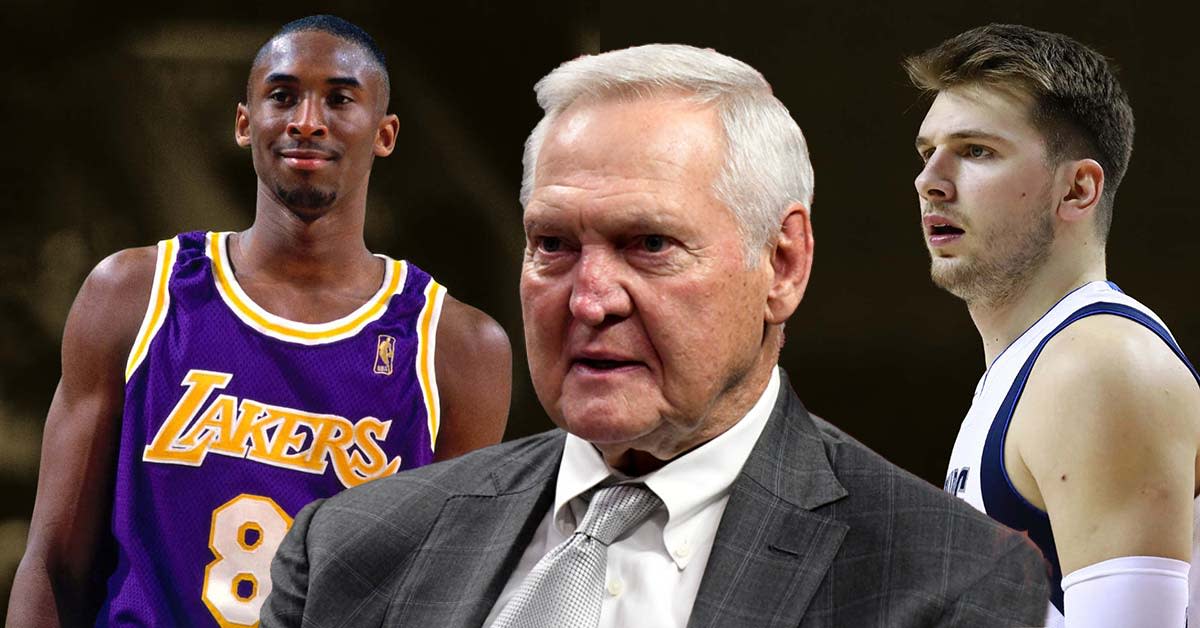
Jerry West, an NBA icon known for his exceptional skills and competitive spirit, has a life story that transcends the basketball court. While his on-court achievements and executive successes are well-documented, West’s journey is equally defined by his ability to overcome profound personal struggles to achieve greatness.
West’s early years in Chelyan, West Virginia, were marked by a deep love for basketball, but also by significant challenges. Growing up in a small, impoverished town, he found solace in the game, often practicing alone for hours. However, his childhood was also marred by the trauma of losing his older brother David in the Korean War and the emotional turmoil stemming from a difficult relationship with his father. These early experiences instilled in West a relentless drive but also laid the groundwork for lifelong battles with anxiety and depression.
Despite these personal hardships, West’s talent and dedication to basketball shone through. At East Bank High School, he led his team to a state championship in 1956, earning a scholarship to West Virginia University. His college career was stellar; he became a two-time All-American and led the Mountaineers to the NCAA Championship game in 1959. West’s success on the court was a testament to his ability to channel his inner turmoil into competitive fire.
West’s transition to the NBA in 1960 marked the beginning of an illustrious professional career with the Los Angeles Lakers. Known as “Mr. Clutch” for his incredible performances under pressure, West became one of the league’s most versatile and prolific guards. He was a perennial All-Star, revered for his scoring, defense, and leadership. However, his career was also defined by near-misses, as the Lakers lost in the NBA Finals eight times before finally winning the championship in 1972. Each loss weighed heavily on West, exacerbating his struggles with anxiety and self-doubt.
Off the court, West’s personal struggles continued. He has been open about his battles with depression, a condition that has followed him throughout his life. In his autobiography, “West by West: My Charmed, Tormented Life,” he candidly discusses the dark periods he endured and the immense pressure he placed on himself. This transparency has been both courageous and inspirational, shedding light on the often overlooked mental health issues that athletes face.
After retiring as a player, West’s challenges did not dissipate, but his transition to an executive role provided a new avenue for his talents and competitive spirit. As the general manager of the Lakers, he played a crucial role in constructing championship teams in the 1980s and the early 2000s, further solidifying his legacy. His success continued with executive roles at the Memphis Grizzlies, Golden State Warriors, and Los Angeles Clippers, where his strategic acumen helped build formidable teams.
Through it all, West’s resilience has been a defining trait. His ability to confront and manage his personal demons while achieving professional excellence is a powerful narrative of perseverance. West’s openness about his mental health struggles has also had a broader impact, helping to destigmatize these issues in the sports world and beyond.
Jerry West’s journey is a profound example of overcoming adversity. His story is not just about basketball greatness but also about the strength to confront personal struggles and emerge stronger. West’s legacy, therefore, is not only etched in NBA history through his on-court and executive achievements but also in his courageous battle against personal hardships, inspiring countless individuals facing similar challenges.
A Deep Dive into Jerry West’s Hall of Fame Career
Jerry West, an NBA legend, has a career that is nothing short of extraordinary. Known for his exceptional skills, competitive spirit, and later his executive acumen, West’s contributions to basketball have cemented his place in the Hall of Fame and made him a lasting icon of the sport.
Early Years and College Stardom
Jerry West’s basketball journey began in the small town of Chelyan, West Virginia. From a young age, West displayed a prodigious talent for the game, honing his skills with relentless practice. His high school career at East Bank High School was marked by exceptional performances, culminating in a state championship victory in 1956.
West’s talent earned him a scholarship to West Virginia University, where he continued to shine. During his college career, he became a two-time All-American and led the Mountaineers to the NCAA Championship game in 1959. His remarkable scoring ability, defensive prowess, and leadership on the court made him one of the most celebrated college players of his time.
NBA Stardom with the Los Angeles Lakers
In 1960, West was selected as the second overall pick by the Minneapolis Lakers, who soon relocated to Los Angeles. West’s NBA career with the Lakers spanned 14 seasons, from 1960 to 1974. Known as “Mr. Clutch” for his ability to perform under pressure, West quickly established himself as one of the league’s premier guards.
West’s scoring ability was legendary. He averaged 27 points per game over his career, and in the 1969-70 season, he led the league with 31.2 points per game. His defensive skills were equally impressive, and he was named to the NBA All-Defensive First Team four times. West’s all-around game and competitive drive made him a perennial All-Star, earning 14 All-Star selections throughout his career.
Iconic Moments and Championships
Despite frequent Finals appearances, team success initially eluded West. The Lakers faced off against the dominant Boston Celtics in the NBA Finals multiple times during the 1960s, often falling short. However, West’s individual performances in these series were nothing short of spectacular. In the 1969 NBA Finals, despite the Lakers’ loss, West was named Finals MVP, the only player in history to earn this honor from the losing team.
West’s perseverance finally paid off in 1972 when the Lakers won their first championship in Los Angeles. That season, the Lakers set an NBA record with 33 consecutive wins, a record that still stands. West’s leadership and clutch performances were pivotal to the team’s success.
Transition to Executive Success
After retiring as a player, West transitioned seamlessly into an executive role with the Lakers. As the team’s general manager, he was instrumental in building the Lakers’ championship teams of the 1980s and early 2000s. West’s keen eye for talent led to the acquisitions of Magic Johnson, Kareem Abdul-Jabbar, Shaquille O’Neal, and Kobe Bryant, all of whom played key roles in the Lakers’ dynastic success.
West’s executive acumen extended beyond the Lakers. He played significant roles with the Memphis Grizzlies, helping them achieve their first playoff appearances, and the Golden State Warriors, contributing to their recent dynasty. Currently, his expertise benefits the Los Angeles Clippers, where his guidance has been crucial in forming a competitive team.
Legacy and Impact
Jerry West’s contributions to basketball are immortalized in the NBA’s iconic logo, which features his silhouette. This recognition symbolizes his lasting impact on the game. Beyond his on-court brilliance and executive success, West’s openness about his personal struggles with anxiety and depression has also been influential, helping to destigmatize mental health issues in sports.
Jerry West’s Hall of Fame career is a testament to his talent, resilience, and enduring influence on basketball. From his days as a clutch performer to his strategic genius as an executive, West’s legacy is etched in the annals of NBA history, inspiring future generations of players and fans alike.
The Blueprint of Success: Jerry West’s Strategies and Achievements
Jerry West, the legendary figure whose silhouette graces the NBA logo, has carved out a remarkable career both on and off the court. His unparalleled success as a player and executive can be attributed to a blend of innate talent, relentless work ethic, and strategic acumen. West’s blueprint for success is a fascinating study in leadership, vision, and resilience.
On-Court Brilliance
West’s journey to basketball immortality began in Chelyan, West Virginia. His high school success led to a standout collegiate career at West Virginia University, where he was a two-time All-American. In 1960, West was selected second overall by the Minneapolis Lakers, who soon moved to Los Angeles. Over a 14-year playing career, West became known as “Mr. Clutch” for his extraordinary performances under pressure.
West’s on-court strategy revolved around a relentless pursuit of excellence. He was known for his meticulous preparation and tireless practice habits. His scoring ability, combined with exceptional defensive skills, made him one of the most versatile players of his era. West averaged 27 points per game over his career and led the league in scoring during the 1969-70 season. His dedication to both offense and defense exemplified his holistic approach to the game, setting a standard for future generations.
Championship Perseverance
Despite personal brilliance, team success was initially elusive for West. The Lakers frequently fell short in the Finals, often against the dominant Boston Celtics. However, West’s perseverance was unwavering. His most iconic moment came in the 1972 season when the Lakers set an NBA record with 33 consecutive wins, culminating in their first championship in Los Angeles. This achievement underscored West’s belief in teamwork and resilience, core components of his success blueprint.
Transition to Executive Leadership
West’s transition from player to executive was marked by the same strategic brilliance that defined his playing career. As the general manager of the Lakers, West orchestrated some of the most significant moves in NBA history. His keen eye for talent and understanding of team dynamics led to the acquisition of Magic Johnson and Kareem Abdul-Jabbar, foundational pieces of the Lakers’ 1980s dynasty.
West’s strategy as an executive was characterized by bold, visionary moves. Perhaps his most daring decision was trading for a young Kobe Bryant in 1996 and signing Shaquille O’Neal. This combination led the Lakers to three consecutive championships from 2000 to 2002. West’s ability to foresee potential and his willingness to take calculated risks were key aspects of his success blueprint.
Expanding Influence
West’s executive acumen extended beyond the Lakers. Joining the Memphis Grizzlies in 2002, he transformed a struggling franchise into a playoff contender, showcasing his ability to build competitive teams from the ground up. His later roles with the Golden State Warriors and the Los Angeles Clippers further demonstrated his strategic prowess. With the Warriors, his insights were crucial in constructing a team that won three championships in four years. His influence with the Clippers has helped them become a formidable force in the Western Conference.
Mental Health Advocacy
An often-overlooked aspect of West’s blueprint for success is his advocacy for mental health. West has been open about his struggles with anxiety and depression, bringing attention to the mental health challenges faced by athletes. His transparency has helped destigmatize these issues, encouraging others to seek help and support.
Legacy and Impact
Jerry West’s strategies and achievements form a comprehensive blueprint for success that transcends basketball. His on-court excellence, strategic executive decisions, and advocacy for mental health have left an enduring legacy. West’s ability to blend talent, hard work, and vision has made him one of the most influential figures in NBA history, inspiring future generations to pursue greatness with resilience and integrity.
From Hardwood to Front Office: Jerry West’s Enduring Influence on the NBA
Jerry West, an NBA legend whose career spans over six decades, has made an indelible impact on the league both as a player and an executive. Known for his clutch performances on the court and his strategic brilliance off it, West’s influence on the NBA is profound and far-reaching.
On the Hardwood
Jerry West’s basketball journey began in the humble town of Chelyan, West Virginia. His early years were characterized by a relentless work ethic and a passion for the game. At West Virginia University, he became a two-time All-American and led his team to the NCAA Championship game in 1959. His stellar college career set the stage for his selection as the second overall pick in the 1960 NBA Draft by the Minneapolis Lakers, who soon relocated to Los Angeles.
West’s NBA playing career, which spanned from 1960 to 1974, is legendary. Known as “Mr. Clutch,” West was renowned for his ability to deliver in high-pressure situations. He averaged 27 points per game over his career and led the league in scoring in the 1969-70 season. West’s all-around game, including his exceptional defense, made him a perennial All-Star and one of the most versatile guards in the history of the NBA. Despite numerous Finals appearances, it wasn’t until 1972 that West finally won an NBA championship, solidifying his status as one of the all-time greats.
Transition to the Front Office
After retiring as a player, West seamlessly transitioned into an executive role, bringing his deep understanding of the game to the front office. As the general manager of the Los Angeles Lakers from 1982 to 2000, West’s strategic decisions were pivotal in shaping the team’s success. His most notable moves included the drafting of Magic Johnson in 1979 and the acquisition of Kareem Abdul-Jabbar. These decisions laid the foundation for the Lakers’ dominance in the 1980s, resulting in five NBA championships.
West’s acumen was further demonstrated in the mid-1990s when he orchestrated the acquisition of Shaquille O’Neal and the draft-day trade for Kobe Bryant. These moves reignited the Lakers’ championship aspirations, leading to three consecutive titles from 2000 to 2002. West’s ability to identify and cultivate talent, coupled with his bold, visionary moves, underscored his genius as an executive.
Influence Beyond the Lakers
West’s impact extended beyond the Lakers. In 2002, he joined the Memphis Grizzlies as president of basketball operations, transforming a struggling franchise into a playoff contender. His strategic decisions and leadership helped the Grizzlies achieve their first playoff appearances, proving his ability to build competitive teams from the ground up.
West’s later roles with the Golden State Warriors and the Los Angeles Clippers further solidified his reputation as a master strategist. At Golden State, his insights were crucial in constructing a team that won three championships in four years. His influence with the Clippers has helped them become a formidable force in the Western Conference, demonstrating his enduring ability to shape successful teams.
Advocacy and Legacy
In addition to his basketball achievements, West has been a vocal advocate for mental health, openly discussing his struggles with anxiety and depression. His transparency has brought much-needed attention to the mental health challenges faced by athletes, helping to destigmatize these issues and encourage others to seek support.
Jerry West’s enduring influence on the NBA is a testament to his exceptional talent, strategic brilliance, and unwavering dedication to the game. From his days as a clutch performer on the hardwood to his transformative role in the front office, West’s legacy is etched in the annals of NBA history. His ability to blend talent, hard work, and vision has made him one of the most influential figures in the league, inspiring future generations to pursue excellence both on and off the court.
FAQs
1. Who is Jerry West?
Jerry West is a former NBA player and executive who had a significant impact on the league both on the court and in front-office roles. He played for the Los Angeles Lakers for his entire career and later became a successful executive with the Lakers, Memphis Grizzlies, Golden State Warriors, and Los Angeles Clippers.
2. What is Jerry West known for?
Jerry West is known for his exceptional skills as a basketball player, earning the nickname “Mr. Clutch” for his ability to perform under pressure. He was a 14-time NBA All-Star, a scoring champion, and won an NBA championship with the Lakers in 1972. As an executive, he is known for building championship-winning teams, such as the Lakers teams of the 1980s and early 2000s, and the Golden State Warriors dynasty.
3. Why is Jerry West the NBA logo?
While the NBA has never officially confirmed it, Jerry West’s silhouette is widely believed to be the inspiration for the league’s iconic logo. The image was designed in 1969 by Alan Siegel and has since become one of the most recognizable logos in sports.
4. What teams did Jerry West play for?
Jerry West played his entire NBA career for the Los Angeles Lakers, from 1960 to 1974. The team was originally based in Minneapolis before moving to Los Angeles in 1960.
5. What are Jerry West’s accomplishments?
As a player, Jerry West was a 14-time NBA All-Star, an NBA Finals MVP, and a scoring champion. He won one NBA championship with the Lakers in 1972. As an executive, he played a key role in building championship-winning teams with the Lakers, Warriors, and Clippers.
6. What is Jerry West doing now?
As of my last update, Jerry West has been involved in a consulting role with the Los Angeles Clippers, where he continues to provide strategic guidance and input. His wealth of experience and basketball knowledge makes him a highly respected figure in the NBA community.
Feel free to ask if you have more specific questions or if there’s anything else you’d like to know about Jerry West or the NBA!


